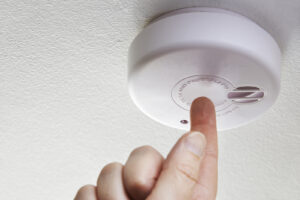How To Protect Your Senior Parent Living At Home Alone

24-hour home care can help aging seniors prepare for emergencies with these tips.
No one likes to think about emergencies happening. But they happen every day. And if your senior parent is living alone at home, you should have a plan for making sure they can handle any emergencies that come up. Planning ahead and discussing potential emergencies with your senior parent can help protect them in the event of an emergency.
The best protection for seniors living at home is 24-hour home care. If your senior parent has 24-hour home care, someone will always be in the home with them to help them. Having someone in the home with them can also make your senior parent feel safer and more secure.
In addition to having 24-hour home care, you and your senior parent should take these steps to help them stay safe if there is an emergency, such as a medical emergency, a house fire, a power outage, or a massive storm:
Get A Medical Alert System or Emergency Phone
If your senior parent falls, gets injured, or faces an emergency, they need a quick way to call for help. A medical alert system is a wearable device with a button that connects to emergency services. Some devices can detect falls automatically.
If your senior parent prefers not to wear a device, a fully charged cell phone with emergency contacts saved is also essential. The phone should be easy to find and use, even in the dark.
Keep An Emergency Kit Stocked with Essentials
Every senior living at home should have an emergency kit with important supplies. This kit should be easy to grab in case they need to leave home quickly. It should include:
- A flashlight with extra batteries
- A first aid kit
- A list of emergency contacts
- Bottled water and non-perishable food (like granola bars or canned goods)
- Any needed medications
- A whistle to signal for help
Keeping this kit in a known, easy-to-reach spot will make it easy for your senior parent or a 24-hour home care provider to grab it quickly.
Get A Backup Power Source
Power outages can be dangerous, especially in extreme weather. Seniors should have a backup power source, like a battery-powered phone charger, in case the power goes out. If they use medical devices that require electricity, such as oxygen machines, a generator or battery backup is essential.
Keeping extra blankets and warm clothing in a place that is easily accessible is also important in case of a winter power outage.
Check Smoke Detectors and Carbon Monoxide Alarms
Fires and gas leaks can be deadly, but having the right alarms can save lives. Every senior’s home should have working smoke detectors in the kitchen, bedrooms, and hallways.
Carbon monoxide alarms should be placed near sleeping areas to detect dangerous gas leaks. It is essential to test these alarms monthly and replace the batteries annually. If the alarm goes off, your senior parent and 24-hour home care team should know how to exit the house quickly.
Find The Water Shutoff
A burst pipe can cause significant flooding and expensive damage. Seniors and their 24-hour home care team should know how to shut off their home’s main water supply in the event of a leak. Labeling the shutoff valve and practicing its use can prevent confusion in an emergency.
It’s also a good idea to keep a plumber’s contact number handy for quick repairs.
If you or someone you know needs help with 24-Hour Home Care in Ada, MI, contact Gauthier Family Home Care. We provide quality and affordable home care services in our community. Call us at (616) 560-4057 for more information.
- How Home Care Helps Seniors Maintain a Cleaner Home - May 22, 2025
- What Are Some Fun Warm Weather Activities Seniors Can Try? - May 14, 2025
- Caregiver of the Month – May 2025 - May 8, 2025
